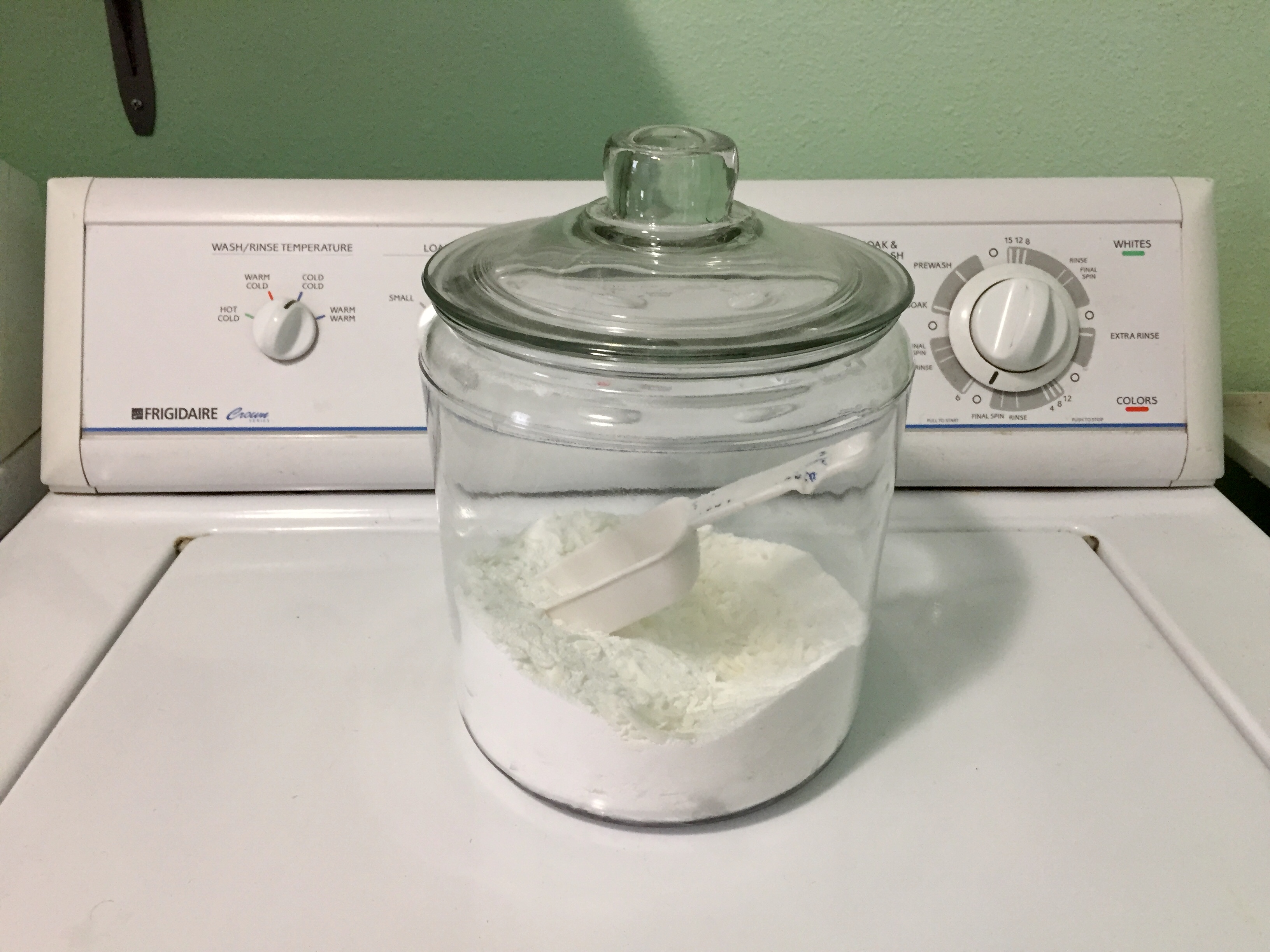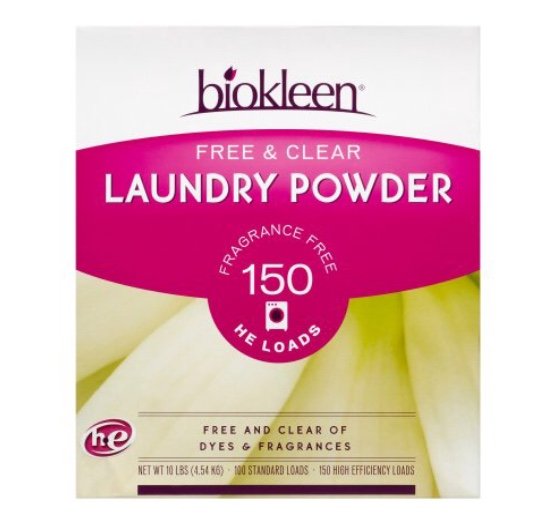
I spent more time researching this topic than I care to admit...
So a week ago, I wrote a post about reconsidering your homemade laundry soap. After looking into this subject a lot more, I don’t think all hope is lost. It all seems to come down to your water type and temperature and the type of soils.
What’s wrong with homemade laundry soap?
After searching around the web looking for answers, I had finally found a site that seemed to have the answers I was looking for all in one place. Here’s a summary of what I found.
The big issue with using soap in laundry is that the soap reacts with the minerals in hard water to create a scum. This scum gets left behind in your clothes and in your machine. Detergent is less sensitive to hard water, so it doesn’t leave behind a scum. Also, soaps only have one type of surfactant(whereas a detergent has multiple types), which doesn’t make it versatile and easily adaptable to different fibers, washing temperatures, and water conditions.
So what’s the verdict?
So first, I just want to say I think it’s possible that homemade laundry soaps do work for some people. It seems if you have soft water and are washing in warm-to-hot water temperatures, you are probably ok. The site did mention that soiled clothes can introduce hardness minerals to your water. I would think that the water softeners in the homemade laundry soap would counteract that. (If you have hard water, that little bit of washing soda isn’t going to be enough.)
What if I have hard water?
First off, signs of hard water include: a "ring around your bathtub”, soaps and shampoos do not lather easily, white residue forms around faucets and drains, and fabrics feel stiff, not fluffy.
If you have hardwater, detergents work best. So if you want to keep making the homemade stuff, you could look into using a synthetic detergent bar. Otherwise on the natural side of things, look for a soap that has a chelating agent such as sodium gluconate. @sending-arrows recommended Kirk's Original Coco Castile Soap Fragrance Free. Again, depending on your water type and temp, and the type of soils you have will determine if this works for you or not.
What I’m going to try.
I’m too pooped out after all this researching to make my own, so I’m going to try a “pre-made” laundry detergent instead.
@squishysquid mentioned using this one in the liquid form. After looking into the ingredients and all that jazz (EWG score - A), I think this brand in a powder sounds like a good option.

image source
Oofta, I am glad to wrap this up! I hope you found this useful (or at the very least, interesting!)
What I want to research is what did people use to wash their laundry before conventional laundry soap existed? I hate spending so much on store bought laundry soap!
Downvoting a post can decrease pending rewards and make it less visible. Common reasons:
Submit
Up until WWI, they used regular soap made from fats and ashes. When there was a shortage of fats and oils during the war, they had to make a different cleaning, thus detergents were made. Another motivation for making detergents was to find something that would clean well with hard water and not leave a residue.
Downvoting a post can decrease pending rewards and make it less visible. Common reasons:
Submit
I imagine the development of automated washing machines played into that as well, wouldn't it? Soap might be more doable when scrubbed over a wash board next to a stream of running cold water, than being sloshed around inside a machine.
Downvoting a post can decrease pending rewards and make it less visible. Common reasons:
Submit
I believe so. Isn’t it ironic how all these inventions were made to make our lives easier and it seems all they did was make them more complicated(and expensive).
Downvoting a post can decrease pending rewards and make it less visible. Common reasons:
Submit
The price we pay for convenience!!
Downvoting a post can decrease pending rewards and make it less visible. Common reasons:
Submit
Interesting. I wonder how different their soap making techniques were then compared to now? I should research the history of soap making. Our family has been delving into the art of soap making the last few years and it would be fun to learn the history with the kids. You've got my gears turning. ;)
Downvoting a post can decrease pending rewards and make it less visible. Common reasons:
Submit
Homemade laundry soap can work, it just takes some tweaking to fit your needs. Different water, different soap. @ironshield
Downvoting a post can decrease pending rewards and make it less visible. Common reasons:
Submit
I’ll say! It all depends on your water hardness, temp, soil type, fabric type. Laundry should not be this complicated lol!
Downvoting a post can decrease pending rewards and make it less visible. Common reasons:
Submit
I make my own laundry detergent, and I sell my homemade coconut soap on my website (on which you can also find my homemade laundry soap recipe):
https://www.joyfulmountain.com/store/p28/Stain-Out_Soap.html
In fact, I made some today! It works just as good as Tide and doesn’t leave a chemical smell in my clothes and washing machine. :)
Downvoting a post can decrease pending rewards and make it less visible. Common reasons:
Submit
Really interesting, and only made with 3 ingredients! Thanks for sharing!
Downvoting a post can decrease pending rewards and make it less visible. Common reasons:
Submit
Ive been using Zum detergent lately. Im liking it so far.
I love Biokleen products, but the powdered did not work well with my washer/water.
Downvoting a post can decrease pending rewards and make it less visible. Common reasons:
Submit
What was it about biokleen that didn’t work for you? Did your clothes not come out clean or...?
Downvoting a post can decrease pending rewards and make it less visible. Common reasons:
Submit
It left crumbs.. Like soap crumbs on the clothes, and weird discoloring on areas. Like it cleaned some spots too well.
Downvoting a post can decrease pending rewards and make it less visible. Common reasons:
Submit